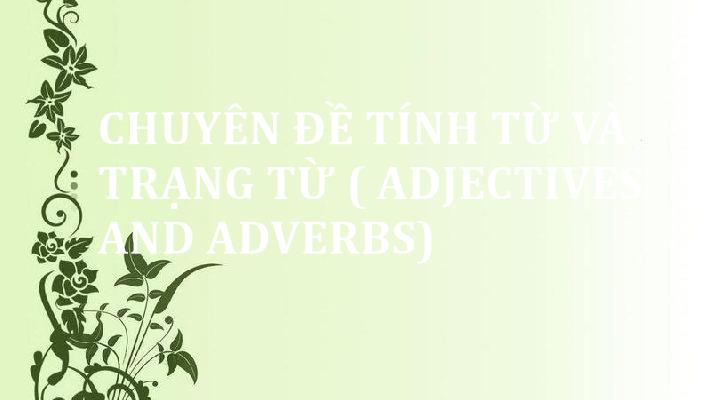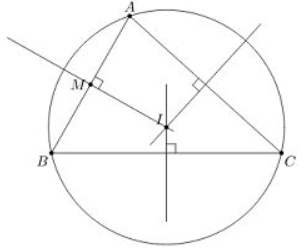Present Simple - Thì hiện tại đơn.
1. Form.
|
(+) |
S + V/Vs/es + O. |
|
(–) |
S + don’t/doesn’t + V + O. |
|
(?) |
Do/Does + S + V + O ? |
§ Lưu ý khi chia động từ:
· Khi chủ ngữ của câu ở ngôi thứ nhất, thứ 2 và ngôi thứ 3 số nhiều, động từ ở dạng nguyên thể.
· Đa số các động từ chia cho chủ ngữ ở ngôi thứ 3 số ít thêm “s” tuy nhiên có 2 trường hợp sau ta thêm “es”:
– Khi các động từ kết thúc bằng:
|
+ -s: misses |
+ -ch: watches, teaches |
|
+ -x: mixes |
+ -o: goes, does, |
|
+ -sh: washes, brushes, |
+ -z: buzzes,... |
– Khi động từ kết thúc bằng “y”:
+ Nếu trước “y” là 1 nguyên âm ta thêm “s” bình thường. (plays, ...)
+ Nếu trước “y” là 1 phụ âm ta đổi ‘y” thành “i” và thêm “es”. (flies, tries, studies...)
2. Uses.
a. Diễn tả hành động lặp đi lặp lại ở hiện tại, thói quen, phong tục, tập quán, khả năng.
Ví dụ: I usually get up at 6 a.m.
He walks to schôl every day.
Cách dùng này thường được sử dụng với các trạng từ:
|
+ always, constantly |
: |
luôn luôn |
|
+ often, usually, frequently |
: |
thường xuyên, thường |
|
+ sometimes, occasionally, from time to time, now and then |
: |
thỉnh thoảng |
|
+ seldom, rarely |
: |
hiếm khi, ít khi |
|
+ every day/ week/ month... |
: |
hàng ngày/ tuần/ tháng... |
|
+ once/ twice/ three times... a week/ month... |
: |
1 lần/ 2 lần/ 3 lần... trên tuần/ tháng... |
b. Diễn tả 1 chân lí, sự thật hiển nhiên.
Ví dụ: The sun rises in the East and it sets in the West.
I am a student.
c. Diễn tả lịch trình, thời khóa biểu, chương trình.
Ví dụ: The train to Busan leaves at 9 a.m.
I have Math on Monday.
The film Thor - Ragnarok is shown on TV this Saturday.
d. Chỉ nhận thức chi giác, tình trạng đang xảy ra ở thời điểm nói.
Cách dùng này thường áp dụng vói những động từ chỉ nhận thức, tình cảm, tinh thần.
Ví dụ:
– know (biết), hope (hi vọng), want (muốn), need (cần), doubt (nghi ngờ), believe (tin tưởng), remember (nhớ), forget (quên), recognize (nhận ra), appear (có vẻ), seem (dường như, có vẻ), love (yêu), like (thích), hate (ghét), contain (chứa đựng), own (sở hữu), include (bao gồm) = insist (of),...
– Tuy nhiên một số động từ như:
think (suy nghĩ), smell (có mùi), taste (có vị), feel (cảm thấy), look (nhìn có vẻ), have (có),... có thể chia ở cả 2 thì hiện tại đơn hoặc thì hiện tại tiếp diễn tùy theo nghĩa của nó.
BÀI TẬP TỰ LUYỆN
Bài 1: Điền trợ động từ:
- I ………. like tea.
- He ………. play football in the afternoon.
- You ………. go to bed at midnight.
- They……….do the homework on weekends.
- The bus ……….arrive at 8.30 a.m.
- My brother ……….finish work at 8 p.m.
- Our friends ………. live in a big house.
- The cat ………. like me.
Bài 2: Chọn dạng đúng của từ
- I catch/catches robbers.
- My dad is a driver. He always wear/wears a white coat.
- They never drink/drinks beer.
- Lucy go/goes window shopping seven times a month.
- She have/has a pen.
- Mary and Marcus cut/cuts people’s hair.
- Mark usually watch/watches TV before going to bed.
- Maria is a teacher. She teach/teaches students.
Bài 3: Điền dạng đúng của từ trong ngoặc
- She (not study) ………. on Saturday.
- He (have) ………. a new haircut today.
- I usually (have) ……….breakfast at 6.30.
- Peter (not/ study)……….very hard. He never gets high scores.
- My mother often (teach)……….me English on Saturday evenings.
- I like Math and she (like)……….Literature.
- My sister (wash)……….dishes every day.
- They (not/ have)……….breakfast every morning.
Bài 4: Viết lại câu, điền đúng dạng từ trong ngoặc:
- My brothers (sleep) on the floor. (often) =>____________
- He (stay) up late? (sometimes) => ____________
- I (do) the housework with my brother. (always) => ____________
- Peter and Mary (come) to class on time. (never) => ____________
- Why Johnson (get) good marks? (always) => ____________
- You (go) shopping? (usually) => ____________
- She (cry). (seldom) => ____________
- My father (have) popcorn. (never) => ____________
Bài 5 Viết lại câu hoàn chỉnh
Eg: They / wear suits to work? =>Do they wear suits to work?
- she / not / sleep late at the weekends =>________
- we / not / believe the Prime Minister =>________
- you / understand the question? =>________
- they / not / work late on Fridays =>________
- David / want some coffee? =>________
- she / have three daughters =>________
- when / she / go to her Chinese class? =>________
- why / I / have to clean up? =>_______
Bài 6: Hoàn thành đoạn hội thoại sau bằng cách điền đúng dạng từ:
My cousin, Peter (have)………..a dog. It (be)………..an intelligent pet with a short tail and big black eyes. Its name (be)………..Kiki and it (like)………..eating pork. However, it (never/ bite)………..anyone; sometimes it (bark)………..when strange guests visit. To be honest, it (be)………..very friendly. It (not/ like)………..eating fruits, but it (often/ play)………..with them. When the weather (become)………..bad, it (just/ sleep)………..in his cage all day. Peter (play)………..with Kiki every day after school. There (be)………..many people on the road, so Peter (not/ let)………..the dog run into the road. He (often/ take)………..Kiki to a large field to enjoy the peace there. Kiki (sometimes/ be)………..naughty, but Peter loves it very much.
————————–
Đáp án:
Bài 1: Điền trợ động từ:
- I don’t like tea.
- He doesn’t play football in the afternoon.
- You don’t go to bed at midnight.
- Theydon’t do the homework on weekends.
- The bus doesn’tarrive at 8.30 a.m.
- My brother doesn’t finish work at 8 p.m.
- Our friends don’t live in a big house.
- The cat doesn’t like me
Bài 2: Chọn dạng đúng của từ
- I catch/catches robbers.
- My dad is a driver. He always wear/wears a white coat.
- They never drink/drinks beer.
- Lucy go/goes window shopping seven times a month.
- She have/has a pen.
- Mary and Marcus cut/cuts people’s hair.
- Mark usually watch/watches TV before going to bed.
- Maria is a teacher. She teach/teaches
Bài 3: Điền dạng đúng của từ trong ngoặc
- She dosen’t study on Saturday.
- He has a new haircut today.
- I usually have breakfast at 6.30
- Peter doesn’t study|does not studyvery hard. He never gets high scores.
- My mother often teachesme English on Saturday evenings.
- I like Math and she likes
- My sister washesdishes every day.
- They don’t have|do not havebreakfast every morning.
Bài 4: Điền dạng đúng của từ trong ngoặc và hoàn thành câu: (Bài 4 trên web)
- => My brothers often sleepon the floor.
- => Does hesometimes stay up late?|Does he stay up late sometimes?
- => I always dothe housework with my brother.
- => Peter and Mary never cometo class on time.
- => Why doesJohnson always get good marks?
- => Doyou usually go shopping?
- => She seldom cries.
- => My father never has
Bài 5 Viết lại câu hoàn chỉnh
- She doesn’t sleep late at the weekends.
- We don’t believe the Prime Minister.
- Do you understand the question?
- They don’t work late on Fridays.
- Does David want some coffee?
- She has three daughters.
- When does she go to her Chinese class?
- Why do I have to clean up?
Bài 6: Hoàn thành đoạn hội thoại sau bằng cách điền đúng dạng từ:
My cousin, Peter (have) has a dog. It (be) is an intelligent pet with a short tail and big black eyes. Its name (be) is Kiki and it (like) likes eating pork. However, it (never/ bite) never bites anyone; sometimes it (bark) barks when strange guests visit. To be honest, it (be) is very friendly. It (not/ like) does not like|doesn’t like eating fruits, but it (often/ play) often plays with them. When the weather (become) becomes bad, it (just/ sleep) just sleeps in his cage all day. Peter (play) plays with Kiki every day after school. There (be) are many people on the road, so Peter (not/ let) does not let|doesn’t let the dog run into the road. He (often/ take) often takes Kiki to a large field to enjoy the peace there. Kiki (sometimes/ be) is sometimes naughty, but Peter loves it very much.







